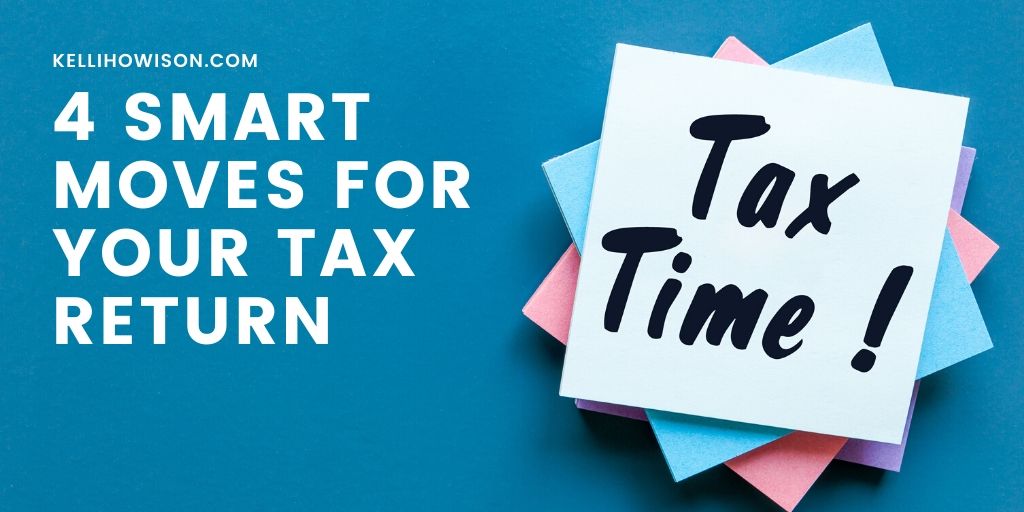It’s getting that time of year when we start thinking about our tax returns and whether you love this time a year because you’re getting a big tax return or a huge red this time year because you know you’ll have to pay, no one can escape tax season. But, if you’re planning on getting a hefty tax return, there are some smart ways you could put it to use for your future finances.
The average income tax refund these days is about $2800 for most American families. Nearly 80% of US tax filers will get some sort of refund and whether you’ve been preparing for it, waiting for it, floated a check on it, or looking to do something else with it, here are 4 Smart Moves for Your Tax Return
#1. Start an emergency fund.
Whether you are a follower of Dave Ramsey or not, and an extra emergency fund is just peace of mind. Start with a $1000 emergency fund to cover any excess emergencies such as car repairs, appliance replacements, or medical expenses. Once you have that $1000 built up start to build three months’ worth of spending. For instance, if you know you have $5000 worth of expenses each month, try to set a goal of $15,000 in savings just in case there’s a job loss or other emergency.
#2. Pay down your high interest at first.
Credit cards can be the worst when it comes to high-interest rate so take a look at any and all debts you might have incurred and take a look at the interest rate. Even if it’s the lowest balance, the highest interest rates should be paid off first. If you have several small balances, consider paying them all off and either consolidating to one credit card or dropping the balance on others.
#3. Put it toward your retirement.
Ask your employer on any additional matching they might offer on 401(k)s or start a new IRA, college fund, or a high-interest CD. Ask a financial advisor where your money would be best spent to benefit you both now and in the future. Plus, with the tax advantages of not paying any taxes on the money you contribute to a traditional IRA, you can say that money in the future.
#4. Get ahead on your rent or mortgage.
US housing is becoming less and less affordable and low-income people are struggling but if you can pay at least a month or two ahead on rent or mortgage or stash it away specifically for that purpose, it can offer peace of mind in case times get tough. – 4 Smart Moves for Your Tax Return


